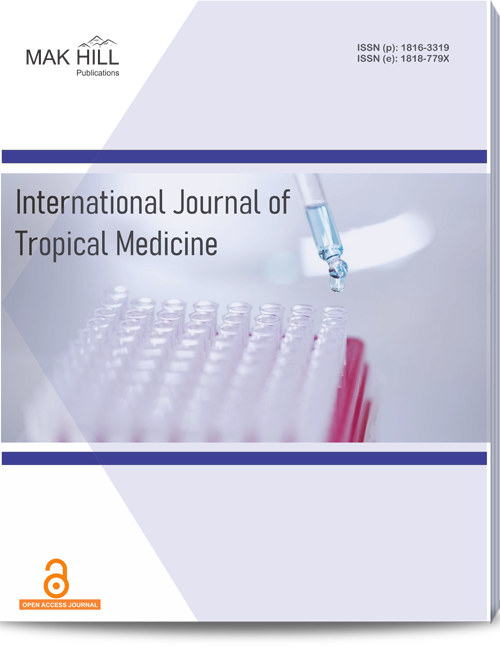
International Journal of Tropical Medicine
ISSN: Online 1818-779XISSN: Print 1816-3319
187
Views
7
Downloads
An Endoscopic Histopathological Study for Detection of Upper GI Lesions in Adults and Pediatric Patients at a Tertiary Care Hospital in India
Kinjal Dodiya, Rajeshkumar Karsanbhai Jegoda, Poorva Parihar and Neeraj Kumar Dubey
Page: 63-67 | Received 24 May 2023, Published online: 28 Jun 2023
Full Text Reference XML File PDF File
Abstract
The inception of flexible endoscopy has led to a noticeable uptick in diagnostic procedures necessitating visualization and biopsy of both upper and lower GI tract. This study aims to link endoscopic diagnoses and histopathological assessments in identifying neoplastic lesions within the gastrointestinal tract. This observational cross‐sectional study is based in a hospital, focusing on endoscopic biopsy specimens. The study spanned a year and included individuals who underwent endoscopically guided biopsies for upper GI symptoms. The sample of 121 cases was randomly selected. Among 121 cases, 12 showed malignancies on histopathological analysis. Of these, 8 were concurrently diagnosed as malignant clinically and histopathologically. Conversely, 88 cases were malignancy‐free on histopathology, 72 of these aligned negatively in clinical and histopathological findings. Sensitivity and specificity were 66.67 and 81.82%, respectively. Positive predictive value was 33.33%, negative predictive value was 94.74% and overall accuracy reached 80%. Integrating endoscopic procedures with histopathological findings remains the diagnostic cornerstone. Our study underscores enhanced correlation between histopathological diagnoses and endoscopic observations for upper GIT lesion identification. Nonetheless, it underscores that endoscopic examinations and histopathological assessments of suspected lesions should be parallel endeavors and not substitutes.
How to cite this article:
Kinjal Dodiya, Rajeshkumar Karsanbhai Jegoda, Poorva Parihar and Neeraj Kumar Dubey. An Endoscopic Histopathological Study for Detection of Upper GI Lesions in Adults and
Pediatric Patients at a Tertiary Care Hospital in India.
DOI: https://doi.org/10.36478/10.59218/makijtm.2023.63.67
URL: https://www.makhillpublications.co/view-article/1816-3319/10.59218/makijtm.2023.63.67